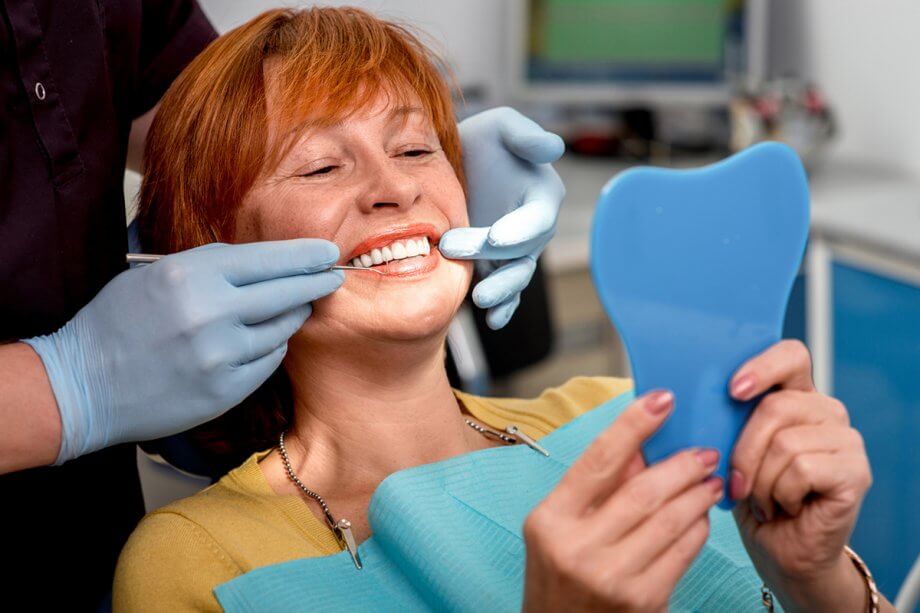Once you’ve scheduled your dental implant surgery, you’ll likely begin to wonder about what to expect during your recovery. If you've had teeth extracted in the past, you might imagine dental implant surgery to be comparable, but you'll be happy to learn that most people find that implants have an easier recovery! While it takes months for your jawbone and dental implants to fuse together, patients are usually able to resume their regular activities after just a few days of rest.
Dental Implant Recovery Timeline
While dental implant surgery recovery is less uncomfortable than that of a tooth extraction procedure, you'll still need to take some time to rest and relax afterwards. A soft foods diet, avoiding strenuous work or exercise, and abstaining from alcohol and smoking will help speed up your recovery. If you follow the aftercare guidelines you’re provided, you'll have the best possible odds of a quick and complication-free recovery.
Most patients are able to resume all of their normal day-to-day activities after three days, although those who need only a single dental implant will heal faster than those who have multiple implants placed during their surgery or patients who have extractions and implant placement on the same day.
Even once you feel back to normal again, that doesn't mean your recovery is complete. The process of osseointegration, in which your dental implants and jawbone fuse together, can take up to six months. Once osseointegration has occurred, the chances of your dental implants failing are very slim, and with proper care and maintenance, they can last a lifetime.
Dental Implant Pain
What about pain during recovery? How much discomfort will you feel? This is a common concern of many patients, but it’s also difficult to answer because everyone has their own perceptions of pain.
Local anesthesia will be used to numb the surgical site just before your dental implant procedure, ensuring that you are pain-free while your implants are being inserted. For a few hours following your surgery your mouth will be numb, and as this wears off, you'll start to feel some throbbing at the surgical site.
We will provide you with information on how to manage your discomfort and swelling. In most cases, over-the-counter pain relievers and cold compresses are all that is needed to reduce swelling, discomfort, and inflammation. If you brush or chew near the implant site, you may have some pain, although most patients only experience this for the first three days after their dental implant placement.
Your swelling and discomfort should improve with each passing day; if, instead, your pain worsens, you should contact our office immediately because this may be a sign that you have an infection. We will schedule an appointment for you to come in for an evaluation.
Learn More About Dental Implant Recovery
If you’d like to learn more about what to expect with dental implants, contact us today at 212-888-4140 to schedule an appointment for a consultation with one of our dentists.

